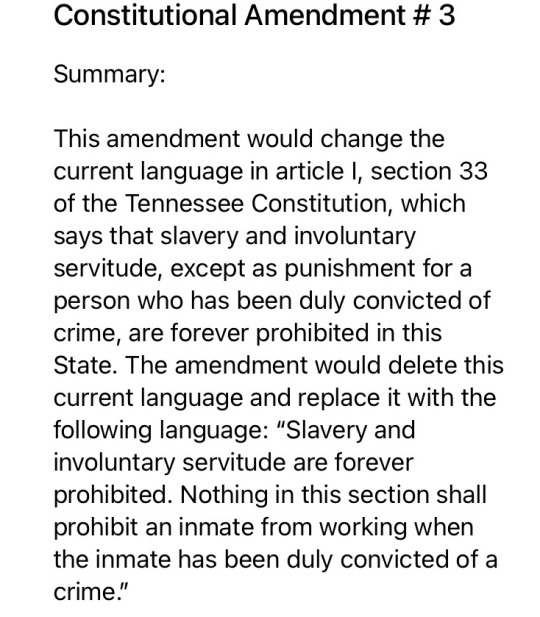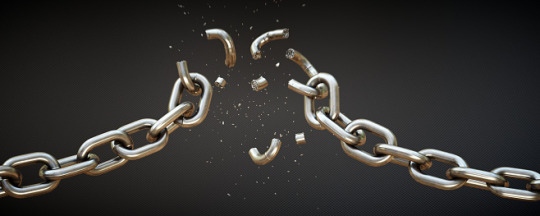#Abolish Slavery
Text
New York would create a commission to consider reparations to address the lingering, negative effects of slavery under a bill passed by the state Legislature on Thursday.
"We want to make sure we are looking at slavery and its legacies," said state Assemblywoman Michaelle Solages before the floor debate. "This is about beginning the process of healing our communities. There still is generational trauma that people are experiencing. This is just one step forward."
The state Assembly passed the bill about three hours after spirited debate on Thursday. The state Senate passed the measure hours later, and the bill will be sent to New York Gov. Kathy Hochul for consideration.
New York would be following the lead of California, which became the first state to form a reparations task force in 2020. That group recommended a formal apology from the state on its legacy of racism and discriminatory policies and the creation of an agency to provide a wide range of services for Black residents. They did not recommend specific payments amounts for reparations.[1]
The New York legislation would create a commission that would examine the extent to which the federal and state governments supported the institution of slavery.[2] It would also address persistent economic, political and educational disparities experienced by Black people in the state today.
According to the New York bill, the first enslaved Africans arrived at the southern tip of Manhattan Island, then a Dutch settlement, around the 1620s and helped build the infrastructure of New York City. While the state Legislature enacted a statute that gave freedom to enslaved Africans in New York in 1817, it wasn't implemented until 10 years later.[3]
"I'm concerned we're opening a door that was closed in New York State almost 200 years ago,"[4] said Republican state Assemblymember Andy Gooddell during floor debates on the bill. Gooddell, who voted against the measure, said he supports existing efforts to bring equal opportunity to all and would like to "continue on that path rather than focus on reparations."[5]
In California, the reparations task force said in their report that the state is estimated to be responsible for more than $500 billion due to decades of over-policing, mass incarceration and redlining that kept Black families from receiving loans and living in certain neighborhoods. California's state budget last year was $308 billion.[6] Reparations in New York could also come with a hefty price tag.
The commission would be required to deliver a report one year after its first meeting. The panel's recommendations, which could potentially include monetary compensation for Black people,[7] would be non-binding. The legislature would not be required to take the recommendations up for a vote.
New York Assembly Speaker Carl Heastie, who is the first Black person to hold the position, called the legislation "historic."[8]
Heastie, the governor and the legislative leader in the state Senate would each appoint three members to the commission.[9]
Other state legislatures that have considered studying reparations include New Jersey and Vermont, but none have passed legislation yet.[10] The Chicago suburb in Evanston, Illinois, became the first city to make reparations available to Black residents through a $10 million housing project in 2021.[11]
On the federal level, a decades-old proposal to create a commission studying reparations has stalled in Congress.[12]
Some critics of reparations by states say that while the idea is well-intentioned, it can be misguided.[13]
William Darity, a professor of public policy and African and African American Studies at Duke University said even calling them reparations is "presumptuous," since it's virtually impossible for states to meet the potentially hefty payouts.[14]
He said the federal government has the financial capacity to pay true reparations and that it should be the party that is responsible.[15]
"My deeper fear with all of these piecemeal projects is that they actually will become a block against federal action because there will be a number of people who will say there's no need for a federal program," Darity said. "If you end up settling for state and local initiatives, you settle for much less than what is owed."[16]
K, Blog Admin notes:
[1] This is useful because it's attempting institutionalization of the divestment in needing money to solve the issue of slavery reparations and instead aims to provide a means to account for such a system by way of adhering to necessities. This seems like a legislative path to that. A formal apology is well overdue so the creation of these institutions, paired with divestment in money (which are literal enslavement notes) makes for said apology more effective and honest.
[2] Correct, slavery is handled and supported to this day at a state and federal level. Any strategies aimed at changing this enslavement system requires changes at both state and federal levels, otherwise what's the point?
[3] Legislature like the one in 1817 what it did was make enslavement go covert while continuing to operate with the same engine. Which is why we need to correct any semblance of it existing by abolishing institutions that were created from slavery and repurpose ones sabotaged by past and existing pro slavery legislature. Reparations fixes itself to do just that.
[4] Read [3] because slavery's door was never shut. There's never been enough evidence, something I hope this legislature corrects, with regards to presenting when this "end of slavery" ever occurred. As far as everyone experiencing this god awful system is concerned slavery continued just fine.
[5] Slavery as a system created such a historical inequivalence for all involved that a path has never honestly been formed to claim we're all equal. How can we "continue" on something we've never even established?
[6] Translation: The enslavers who own this system over us and invested so much in slavery can't put their money where their labor is. This is our issue how? Legislature like this will help correct that.
[7] I would hope that this conversation around monetary compensation and reparations from enslavement systems involves a divestment plan from a currency note that has factual connections to and will continue to be looked at as an enslaver note to those who study slavery historically. So this might look like an institution that can help communities divest from ever even needing to use money due to their systemic connections to slavery.
[8] This legislature is needed and overdue, I wouldn't call it historic yet. People within government tend to have a low bar for what's historic and epic.
[9] Not enough people. 3 is not enough. This is a ridiculously low amount considering how easy it can be to sabotage this work as they have in the past, this increases that chance. They need more community input. Otherwise, what's the point?
[10] Further implicating these states with systemic slavery.
[11] Not enough for similar reasons that a slaver creating their own paper and telling you to live off of it is not enough to stop slavery.
[12] So the one thing that did have a semblance of working, you let it rock there, doing nothing? Seems like an institutional trend.
[13] How? Explain using evidence in the same way we abolitionists use evidence to prove slavery is not needed.
[14] Agreed, and they don't have the capacity to make their enslaver dollars mean much into the future. Money temporarily becomes pay outs which are like the apology letter you include system changes with otherwise its just enslavers recycling their image.. AGAIN.
[15] Agreed, but I hope this doesn't mean shift in focus from what needs to structurally change at a state level and what these types of legislature can do. I think federal changes should come with state strategizing as well.
[16] see [14] and [15]
#reparations#thoughts#news#policy#legislature#trans atlantic slave trade#slavery#abolish slavery#abolish police#abolishment#black lives matter#new york#nyc#new yorkers#black new yorkers
73 notes
·
View notes
Text
Voters in three states approved ballot measures that will change their state constitutions to prohibit slavery and involuntary servitude as punishment for crime, while those in a fourth state rejected the move. The measures approved Tuesday curtail the use of prison labor in Alabama, Tennessee and Vermont. In Oregon, “yes” was leading its anti-slavery ballot initiative, but the vote remained too early to call Wednesday morning.
In Louisiana, a former slave-holding state, voters rejected a ballot question known as Amendment 7 that asked whether they supported a constitutional amendment to prohibit the use of involuntary servitude in the criminal justice system.
The initiatives won’t force immediate changes in the states’ prisons, but they may invite legal challenges over the practice of coercing prisoners to work under threat of sanctions or loss of privileges if they refuse the work.
The results were celebrated among anti-slavery advocates, including those pushing to further amend the U.S. Constitution, which prohibits enslavement and involuntary servitude except as a form of criminal punishment. More than 150 years after enslaved Africans and their descendants were released from bondage through ratification of the 13th Amendment, the slavery exception continues to permit the exploitation of low-cost labor by incarcerated individuals.
“Voters in Oregon and other states have come together across party lines to say that this stain must be removed from state constitutions,” Oregon Sen. Jeff Merkley, a Democrat, told The Associated Press.
“Now, it is time for all Americans to come together and say that it must be struck from the U.S. Constitution. There should be no exceptions to a ban on slavery,” he said.
Coinciding with the creation of the Juneteenth federal holiday last year, Merkley and Rep. Nikema Williams, D-Georgia, reintroduced legislation to revise the 13th Amendment to end the slavery exception. If it wins approval in Congress, the constitutional amendment must be ratified by three-fourths of U.S. states.
After Tuesday’s vote, more than a dozen states still have constitutions that include language permitting slavery and involuntary servitude for prisoners. Several other states have no constitutional language for or against the use of forced prison labor.
Voters in Colorado became the first to approve removal of slavery exception language from the state constitution in 2018, followed by Nebraska and Utah two years later.
The movement to end or regulate the use of prison labor has existed for decades, since the time when former Confederate states sought ways to maintain the use of chattel slavery after the Civil War. Southern states used racist laws, referred to as “Black codes,” to criminalize, imprison and re-enslave Black Americans over benign behavior.
Today, prison labor is a multibillion-dollar practice. By comparison, workers can make pennies on the dollar. And prisoners who refuse to work can be denied privileges such as phone calls and visits with family, as well as face solitary confinement, all punishments that are eerily similar to those used during antebellum slavery.
“The 13th Amendment didn’t actually abolish slavery — what it did was make it invisible,” Bianca Tylek, an anti-slavery advocate and the executive director of the criminal justice advocacy group Worth Rises, told the AP in an interview ahead of Election Day.
She said passage of the ballot initiatives, especially in red states like Alabama, “is a great signal for what’s possible at the federal level.”
“There is a big opportunity here, in this moment,” Tylek said.
#us politics#news#ap news#associated press#nbc news#abolish slavery#slavery#american slavery#slavery didn’t get abolished it just got modernised#prison labor#Alabama#tennessee#Vermont#Oregon#us constitution#13th amendment#Sen. Jeff Merkley#Rep. Nikema Williams#2022 midterms#2022 elections#2022
222 notes
·
View notes
Text

Chattel = Slavery
#pay attention#educate yourself#educate yourselves#wake the fuck up#wake up#wake up america#wake up people#wake up world#do your own research#do your research#do some research#do your homework#spiritual knowledge#knowledge is power#did you know#abolish slavery#crimes against children#crimes against humanity
6 notes
·
View notes
Text


If you live in Tennessee, slavery (underpaid coerced prison labor) is on the ballot. Early voting has already started! Vote yes on amendment 3!
It seems that what this addition says is that convicts will be allowed to have jobs only if they want, but they will not be forced. This seems to be a step in the right direction.
#abolish prison labor#forced prison labor#Tennessee#midterms#2022 midterm elections#vote yes on amendment 3#blm#black lives matter#prison industrial complex#prison abolition#tn government#Tennessee politics#abolish slavery#stop prison labor#end prison labor#criminal justice reform#please vote
3 notes
·
View notes
Text
Not socialist in a “I won’t have to work” type of way but socialist in a “I’ll still be working but I won’t be worried I won’t make the rent” type of way. In a “billions won’t be hoarded by one person” type of way. In a “janitors, fast-food workers, child care workers, preschool teachers, hotel clerks, personal care and home health aides, and grocery store cashiers, will live comfortably” type of way. In a “the sick and elderly will be cared for” type of way. In a “no child should work” type of way.
#socialist#socialism#communism#anti capitalism#the belief that we won’t work under capitalism genuinely makes me so mad#like#you realize the goal of social reform is to abolish imperialism right?#there won’t be good just showing up out of nowhere without slavery and/or imperialism
86K notes
·
View notes
Text
Despite the internet becoming a thing and thus making public opinion stupid easy to access it’s kinda weird how very few politicians and government officials use it to see and do what the public wants
#politics#abolish the monarchy#abolish the police#abolish capitalism#abolish borders#abolish ice#abolish slavery#abolish gender#abolish prisons#acab#anarchist#anarchism#anarchocommunism#government#politicians#BLM#blm ally#queer liberation#queer rights#gay rights#gay liberation#trans rights#trans liberation
1 note
·
View note
Text

I'm not gonna be quiet no matter how badly people want their feeds to go back to "normal"
I'm here and Im gonna fight!
#end the war on Afghanistan#landback#decolonize globally#palestinian lives matter#black lives matter#free sudan#free syria#abolish the police#armenia#syria#end the cuban embargo#cuba#dont falter now#keep fighting#end slavery in congo#congo
441 notes
·
View notes
Text

stealing this screenshot from a post that was made unrebloggable but whats incredibly funny is that almost none of that shit happened in 1789. slavery wasn't abolished until 1794 the height of the "reign of terror"
#frev#op is accidentally giving robespierre far too much credit for implying he singlehandedly abolished slavery with his IRON FIST OF TERROR
159 notes
·
View notes
Text
societies that demonize children and child bearing when their population starts its dramatic decline and women still refuse to have children: 😮
#I'm not saying that people need to be forced to have children#but sometimes social engineering works#if you do bristle at the idea of having children#that repulsion did not emerge in a vacuum and isn't any more natural than the people you think were brainwashed to want them#there's this idea that heterosexual norms need to be constantly enforced because they're unnatural (?) or not the default or something#and it's not clear to me if the idea is that you can abolish heteronormativity to return people to their natural inclinations#or if the idea is that as heteronormativity is engineered so also you can engineer whatever you like#either way#one of the implications has been that having children is slavery and not having children is freedom#and so if you think that#as the heterosexual values were culturally pushed#so also your hatred of children is a cultural expression#your beliefs are not insulated from your society or your surroundings
218 notes
·
View notes
Photo

Do World Powers Engage in Subtle Systemic Slavery or Overt Systemic Slavery? It doesn’t Matter. Slavery is Slavery & It Will Never Be Needed Especially Not As A System.
The United States along with other world powers and those that serve them have created this ‘using us, yet against us’ system. We need to change this. The fire James Baldwin spoke of, the very merited rage those enslaved have against this system, is well overdue.
Those who serve a government that knowingly allow for enslavement still and lie to people about it being abolished when their own amendment backs daily institutional and systemic enslavement when it allows “slavery is abolished except in punishment or crime“. This does nothing to remove slavery as a systemic feature from this governing system and you are implicit.
by - K, Blog Admin
What happens when we as a community repurpose the instruments of science and evidence gathering and focus on the 13th amendment? This piece of document literally allows for enslavement. What has been created in its wake?
Here’s the thing, when colonial imperial powers in Europe said okay when issues occur we’re gonna call them ‘crime’ they meant it as a word to account for social norms being breached and a sort of “holler if you hear me“ approach to solving those issues was laid out institutionally which included neighborhood watch people that could process this. They later became police. Between that time and the present 2023, legislature and policy reshaped crime and policing, as well as the defending of issues through military, crime became systemically synonymous with prisons/cages/slavery to solve those issues.
From the Trans-Atlantic slave trade and its bolstering of these pro enslavement laws to this past historical investment in this strange notion of punishing others so physically, violently to the benefit of a system, a legalized market of slavery was formed and continues to persist with similar legislative and political play on words as they did with the 13th amendment’s clause:
The 13th Amendment to the United States Constitution provides that "Neither slavery nor involuntary servitude, except as a punishment for crime whereof the party shall have been duly convicted, shall exist within the United States, or any place subject to their jurisdiction."
When you specifically write into law and action that amendments create and actualize the means to the system we use, what are you enacting when you pronounce through this same mechanism that “no slavery shall exist within the united states or any place subject to its jurisdiction - EXCEPT as punishment for crime“?
We need to, as a people really inspect this slowly and carefully because science has yet to produce any evidence that says punishment at that level and method is required to solve these issues so where is this evidence that says that type of punishment is even needed for the people to “fall in line”?
Secondly, isn’t it evident that processing issues as merely ‘crime’ is factually bringing us more structural issues than not because not every issue can be generalized to crime and often times the word crime itself just doesn’t do nearly enough to account for the disabled community and many other far reaching issues.
These aren’t assumptions, these are educated deductions based on statistical data provided by the errors of the running system. Again, it has yet to produce reputable convincing evidence that establishes prisons, crime, and cops/ slave patrol systems they synergized with as effective means to solve the issues we as a society constantly face.
And with this same lack of adhering to scientific facts are we supposed to feel comforted by these slave industry agents, legislators and policy makers that allow for that amendment to exist as is because they know it buys them that much time to not worry of their implicitness in enslavement of others?
I implore everyone watch the documentary by Ava DuVernay 13th available for free on youtube from NetFlix due to its educational merit. This documentary is like a course 101 on understanding just how much of an issue enslavement systems are and how synonymous prisons and cops are to slave markets and patrols. It gets right to the problem of slavery, what scriptures did they use to embed it into our social mainframe? did it exist back then? Yes, Is it gone? No, it let’s us know it’s still active and strategies by white supremacists and slavers then benefit their lineages and communities now.
They have a lot of control over the systems that try to govern us. Reconfiguring, inspecting and enacting amendments at this level will be required for us to do something meaningful against this oppressive system and its unsustainable, inefficient amalgamation with slavery markets as a resource system.
Reparations for those harmed by these systems as well as systemic decolonization strategies will be commonly needed. We need documentaries like this and similar subject media to help the public understand the necessary steps to abolish prisons and repurposing the military that serve them away from the rich’s interest and focus on the people. Since all defending this slavery system are implicit.
13th by Ava DuVernay is available now on YouTube for free via NetFlix along with other educational documentaries
#documentary#trans atlantic slave trade#history#scripture#policy#legislature#amendment#ava duvernay#13 the musical#13th amendment#politics#slavery#slave market#prison industrial complex#science#slave patrol#abolishment#abolish police#abolish slavery
57 notes
·
View notes
Text
Daenerys' storyline in ADWD is a good way to complexify heroic narratives without invalidating the idealism of the savior. What is in question isn't the morality of freeing slaves (because that's already indisputable), but how to integrate them in society in a effective way when that goes against ancient traditions of subjugation. It offers an honest portrayal of power struggle, how the oppressing class does not give up their power easily, and in order to make a revolution stick you must give the oppressed the necessary tools to keep themselves empowered, the oppressed must be able and willing to reign fire on those who seek to put them in chains again. With heroic narratives there's always an extraordinary someone saving people from certain doom and everyone is happy. the end. But with Dany there's an exploration of the aftermath. Her storyline explores her struggle of wanting to do good, on trying to keep her people safe while dealing with powerful people who seek to maintain their hierarchies. It's an exploration of what power can mean to different groups. Power can be about subjugation but it can also be a way to prevent yourself from being subjugated. The great masters would not have behaved differently if Dany had proposed gradual and peaceful reforms on slavery, because they cared first and foremost about their status as a ruling class, and that status was only possible through the exploitation of other people, because for a group to be above requires all others to be below, stepped on by those above.
#last semester i studied about the process of slavery abolishment in my country during the 19th century#which was a process done mostly through gradual and peaceful reforms#and yet the slave owners still did ALL they could (increasing violence against enslaved ppl + human trafficking) to maintain the system#people who truly believe in slaving others are vile in any scenario. because slavery is vile. there's no way around it.#daenerys targaryen#a dance with dragons#asoiaf#valyrianscrolls#cw slavery
373 notes
·
View notes
Text
“By what standard of morality can the violence used by a slave to break his chains be considered the same as the violence of a slave master?”
- Walter Rodney

#food not bombs#anarchist#foodnotbombs#anarchism#anarchy#food is a human right#foodisaright#lgbtq#vegan#abolish capitalism#slavery#from the river to the sea palestine will be free#free palestine#palestine
144 notes
·
View notes
Text
I think one of Jude's majorly overlooked character traits is how funny he is. I still lose my mind everytime I read that one scene where Harold was interviewing Jude for his research assistant position and he mentions how, except for a few of them, the majority of the amendments in the constitution are the "dross" of politics past. Dross has a couple of meanings, the one Harold meant was "remnants" but another meaning is "worthless" and Jude is so quick to ask him "You think the thirteenth admendment is worthless 🤨?"
For non-Americans the thirteenth amendment is the one that abolished slavery lmfao get that white man Jude
#you think abolishing slavery is useless? smh harold#harold was so done w him in that scene lmfaooooo#thats NOT what i meant JUDE#but no fr jude can be so funny sometimes#a little life#jude st francis#a little life play#een klein leven#a little life book#harold stein
131 notes
·
View notes
Photo

“Never Work”
190 notes
·
View notes
Text

#slavery#wage slavery#poverty#abolish capitalism#capitalism#factsmatter#jack facts#factsnfunnypics#fun facts#random facts#fact of the day#facts#fact check#fact#ausgov#politas#auspol#tasgov#taspol#australia#fuck neoliberals#neoliberal capitalism#anthony albanese#albanese government#eat the rich#eat the fucking rich#fuck the gop#fuck the police#fuck the patriarchy#fuck the supreme court
51 notes
·
View notes